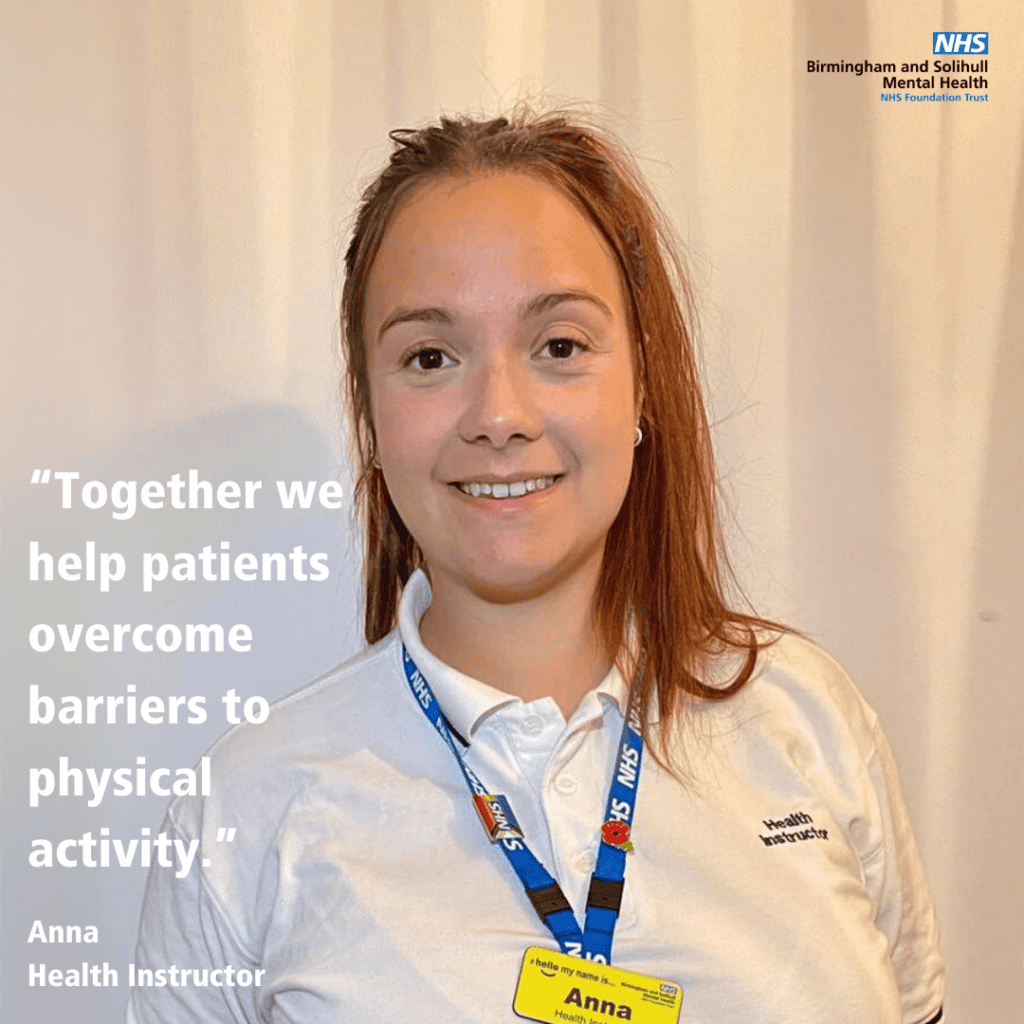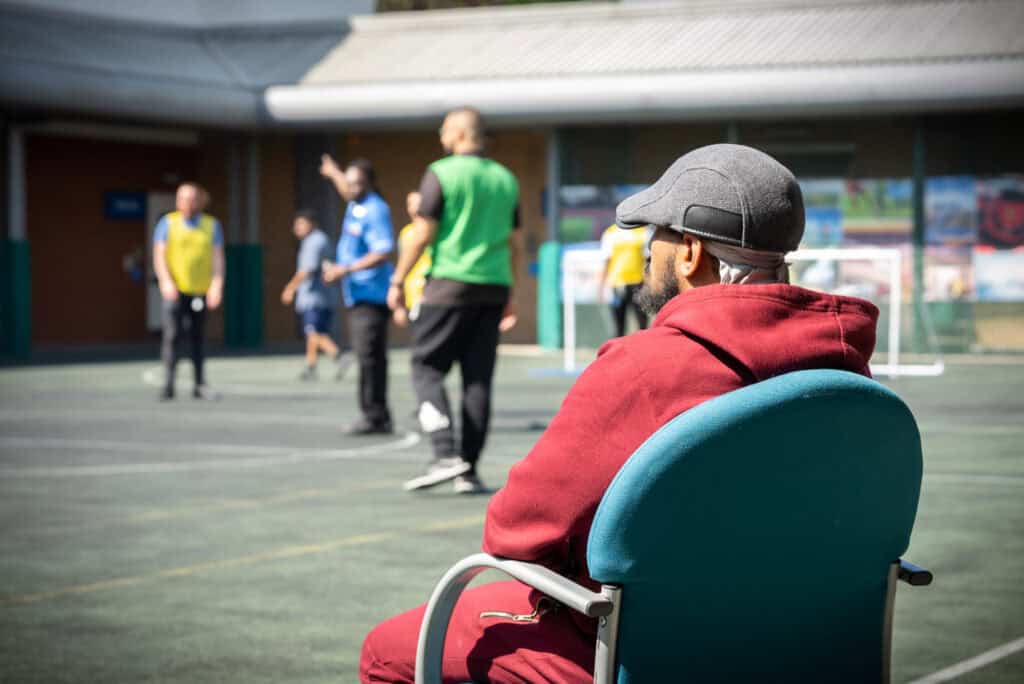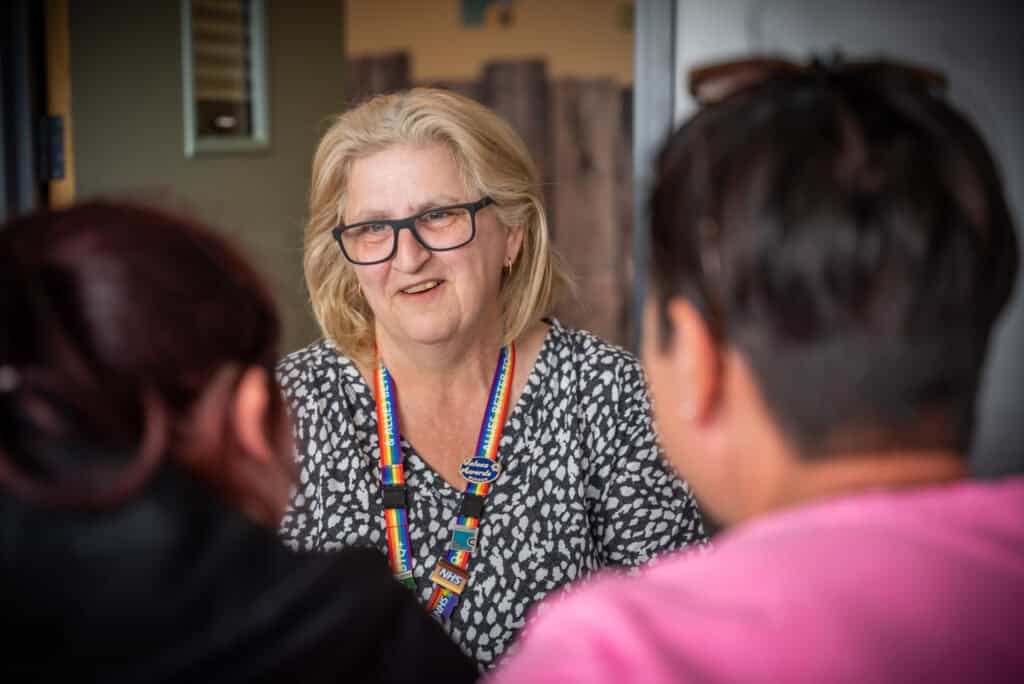The best part of my job is seeing the benefits that exercise and physical activity can have and the positive impact on our patients’ wellbeing, mental health, and quality of life!
It’s a well-known fact that being active can be a great natural mood booster.
At BSMHFT, we have a range of skilled Health Instructors who work across our sites, providing specialist support for patients and service users.
Located across the patch, our Health Instructors work with service users/patients to assess their lifestyles and wellbeing, set goals for improving their health, agree action-plans, and provide practical support and information that will help people to change their behaviour.

Today, we caught up with Anna Nye, a Health Instructor for our Dementia and Frailty Service. Having worked at the Trust for over eight years, Anna is passionate about her role and wants to educate people on the benefits of physical activity, specifically for older adults in our care.
“I work with older adults across two inpatient sites, covering four wards at the Juniper Centre and Reservoir Court. Dementia and Frailty patients are typically aged 65 years and older. As a Health Instructor, I offer an opportunity to engage in physical activity to reduce poor functional performance after acute hospitalisation, improve health and reduce the risk of heart disease, strokes and improve mental health and wellbeing.
Physical activity has lots of benefits for our mental and physical wellbeing such as improving mood, managing anxiety and depression, it helps us to manage stress, offers a chance to socialise with others and helps maintain memory and brain function. Our approach is aligned with government recommended guidelines for exercise that adults aged 65 and over should do at least 150 minutes of moderate intensity activity a week or 75 minutes of vigorous intensity activity if you are already active, or a combination of both.
We regularly we provide groups that are easily accessible and enjoyable such as Tai Chi and movement to music. We provide activities that improve strength, balance, and flexibility to help reduce the chance of falls. Around one in three adults over 65 and half of people over 80 will have at least one fall a year according to NHS statistics. Falls can lead to serious injury, with this risk increasing with age. These injuries can impact on mobility and in turn affect quality of life.
It is important that we work with patients to maintain and improve muscle strength, balance, and confidence to help prevent falls and teach techniques such as backward chaining (to get up off the floor safely).
Together we help patients overcome barriers to physical activity.”
If you would like to read more about the mental health benefits of physical activity, please visit Better Health’s website today.
Published: 12 July 2024









